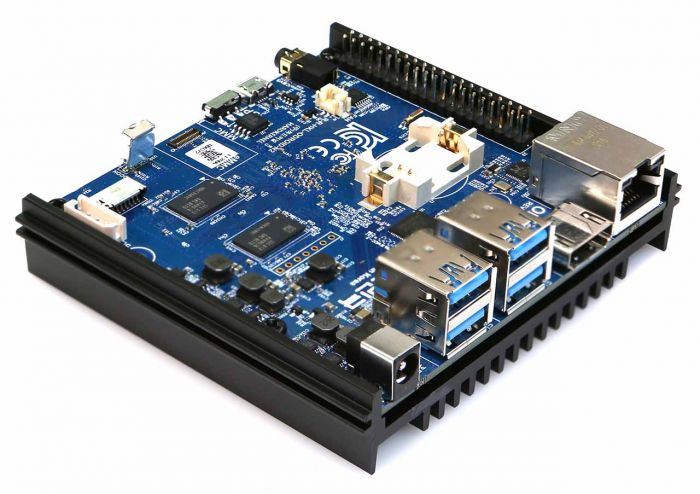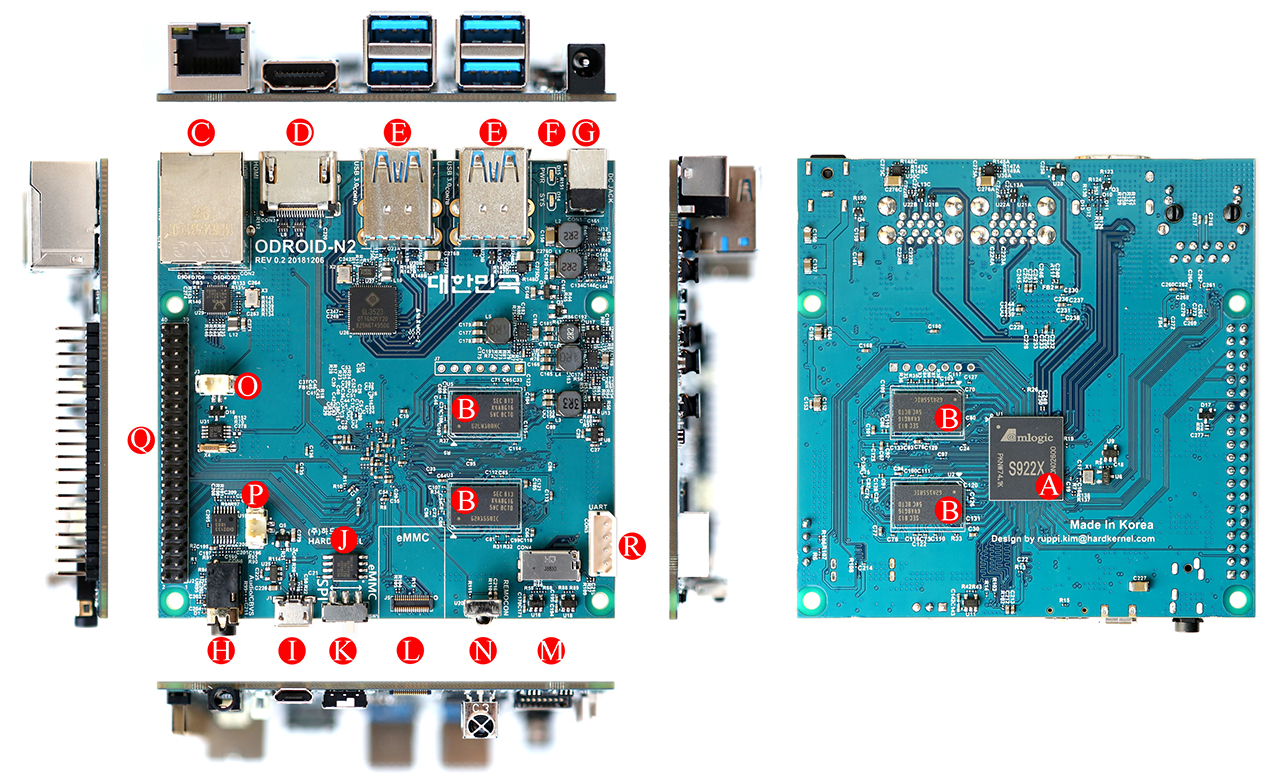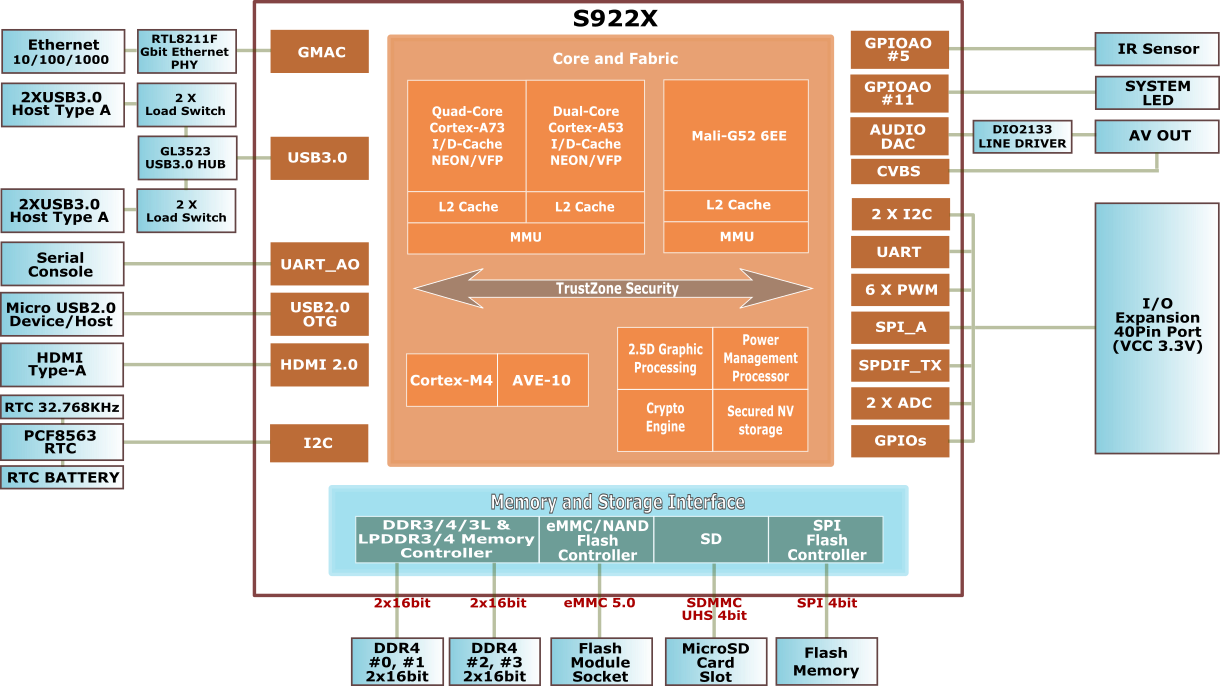Blog
All Blog Posts | Next Post | Previous Post

 Running Miletus on Raspberry Pi alternatives
Running Miletus on Raspberry Pi alternatives
Friday, May 19, 2023

If you are familiar with the world of single board computers then you have probably noticed the difficulties when wanting to purchase a Raspberry Pi. This is caused by various component shortages surrounding the Raspberry Pi and the resulting imbalance between demand and supply.
Depending on your project and needs, you might find yourself looking at alternatives after a while. We know we did, and that is how ODROID came under our radar. Let's see how this journey turned out!
What's ODROID?
ODROID is a series of single-board computers and tablet computers created by Hardkernel. They provide both development boards and software. While the name comes from Open + Droid, their hardware boards are actually not open-source. The officially supported operatings systems are Android and Ubuntu. However, there are also a variety of third party images available for download directly from the Hardkernel website.
ODROID vs Raspberry Pi
Both manufacturers have multiple models available to satisfy the different needs, so comparison is something to be done based on what you are looking for in a SBC and it's a matter of figuring out what fits your needs best. Some of the common points to compare are: price, CPU, memory, power requirements, network.
Here's a quick comparison between the 4GB version of Raspberry Pi 4B, ODROID C4 and ODROID N2+ following some of the points above:
| Raspberry Pi 4B | ODROID C4 | ODROID N2+ | |
| CPU | Broadcom BCM2711 quad-core Cortex-A72 @ 1.5 GHz | Amlogic S905X3 quad-core Cortex-A55 @ 2.0 GHz | Amlogic S922X Quad-core Cortex-A73(up to 2.4Ghz) and Dual-core Cortex-A53 (up to 2Ghz) |
| Memory | 4GB LPDDR4 | 4GB DDR4 | 4GB DDR4 |
| Power | 5V/3A via USB-C or GPIO header | 12V/2A via DC connector | 12V/2A via DC connector |
| OS | Raspberry Pi OS | Android or Linux (Ubuntu) | Android or Linux (Ubuntu) |
| Network | Gigabit Ethernet + 2.4 GHz and 5.0 GHz IEEE 802.11ac Wi-Fi + Bluetooth 5.0, BLE | Gigabit Ethernet + Optional WiFi USB adapters | Gigabit Ethernet + Optional WiFi USB adapters |
| Price | $55 (Adafruit) | $54 (Hardkernel) | $83 (Hardkernel) |
But what does Miletus have anything to do with this?
We were working on a custom project that initially started out on a Raspberry Pi with Miletus. The development was nearing its end when the shortage started and after months of halting we asked ourselves if there was another way to proceed without having to re-do the whole development from scratch. ODROID surfaced as a potential alternative, so we looked at our requirements and researched what the N2+ board can do:
- If we install the recommended Ubuntu Mate distribution then we can install WebkitGTK too which is a requirement for Miletus
- It uses the same GPIO interface we need
- It can run Lazarus allowing us to recreate the Miletus shell application
And with that we only had a few question marks left that was related to the project itself. To figure out the answer to those, we ordered an ODROID N2+ for testing.
The road to a running application
Once our test device arrived, we downloaded and installed the recommended Ubuntu Mate distribution and started researching our project related question marks. After all, there's no point in progressing further if the ODROID we ordered cannot do what we want to use it for. Fortunately the path to success was looking bright so we proceeded with installing Lazarus and recompiling our Miletus shell application but this time on ODROID.
We had to spend some time making sure our shell application was functional. Once we could confirm it was all OK, we temporarily replaced our Raspberry Pi shell application with the ODROID shell application. Then we modified our Miletus project so the GPIO was updated to access the correct pin numbers.
Accessing these GPIO pins work the same way on both Raspberry Pi and ODROID, it's only a matter of figuring out which pins to connect to. After selecting the pins, we built the application from the Delphi IDE and copied the resulting packaged application to our ODROID device. Then we verified if all of the pins are accessible. Unfortunately some of them were already in use, so with a few iteration of trial and error and disabling some interfaces we ended up with 16 pins that were free to use. This is the only thing that changed in our project in the end:
const //Raspberry pins: //RelayBoardPins: array[1..16] of Byte = (5, 6, 13, 16, 19, 20, 21, 26, 2, 3, 22, 27, 25, 17, 24, 23); //ODROID pins RelayBoardPins: array[1..16] of SmallInt = (482, 487, 481, 491, 472, 464, 485, 478, 484, 477, 483, 476, 480, 479, 492, 473);
With that our application was up and running once again! And the time we spent on this? About 2-3 days in total including all installation, setup, research and testing.
You might have already guessed, there is no proper integration for this as it would require additional work. There were also some small Lazarus related issues that needs further investigation. While handling these was not a requirement to wrap up our custom development, it's something that would need to happen in order to bring ODROID as a new target to Miletus. However, the possibility is there!
The ODROID N2+ hardware
Here is a more detailed via on the hardware capabilities of the ODROID N2+ or visit the Hardkernel website for all the details



What do you think?
Would you like us to add support for Linux-based ODROID systems? Do you have perhaps other suggestions in mind? Let us know if this is something you'd like to see pursued further!
Tunde Keller

This blog post has not received any comments yet.
All Blog Posts | Next Post | Previous Post